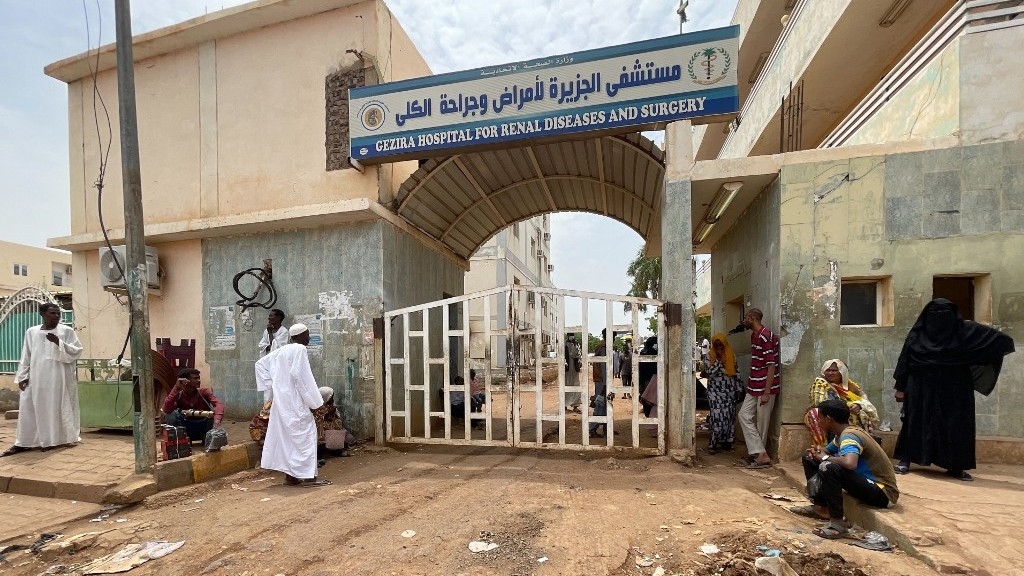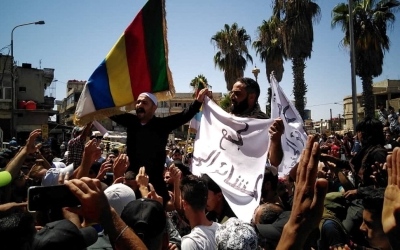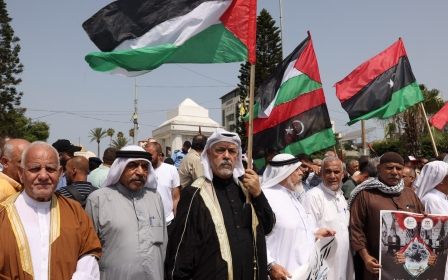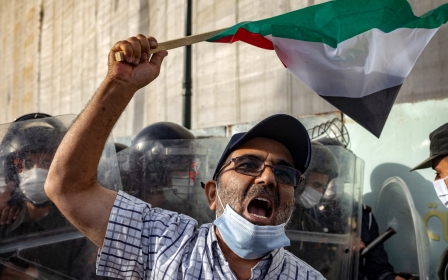Arabic press review: Hospitals in Sudan face widespread looting

Sudanese hospitals face widespread looting
Conditions in Sudan’s hospitals have dramatically worsened as looting has become widespread amidst the ongoing conflict that broke out in April.
According to Nicholas Papachrysostomou, the Doctors Without Borders emergency coordinator, the situation has deteriorated in recent weeks.
Speaking exclusively with Arabi21, he described the situation in hospitals as “terrifying” and something that has “caused shock and panic for us”.
While it is important for international organisations to support civilians in the country, Papachrysostomou noted that given the tense situation and ongoing fighting, it is difficult for them to respond.
New MEE newsletter: Jerusalem Dispatch
Sign up to get the latest insights and analysis on Israel-Palestine, alongside Turkey Unpacked and other MEE newsletters
"Sudan was a difficult place to work in before the current conflict, but now there are more crippling bureaucratic and administrative obstacles that make it difficult for organisations to respond,” he added.
Many hospitals have reported supplies and equipment, which are necessary for the treatment of patients, being confiscated and looted.
The looting comes at a critical time, as the number of casualties in Sudan have continued to climb. News reports state that the war is entering its “deadliest phase yet”. Women and children have been particularly vulnerable in the conflict, as shelling and live fire have affected homes and civilians.
Doctors Without Borders has called on all parties and actors involved in the conflict to allow them to carry out basic humanitarian assistance without hindrance.
Electricity prices soar in Syria
Electricity prices in Syria have risen by around 200 percent, the country’s Ministry of Electricity announced this week, as the government moves to cut subsidies in the face of an energy crisis.
The hike in prices came after protests broke out over the increase in fuel prices and basic goods, according to al-Araby al Jadeed.
The rise in fuel prices came into action on 17 August, which caused widespread anger in the south of Syria, eventually leading to demonstrations in the cities of Sweida and Daraa. The protests have now entered their third week.
According to the ministry, people who were paying 90 liras for 1,500 kilowatts of electricity will now have to pay 200 liras.
Those who use more than 2,500 kilowatts of electricity will have to pay 450 liras instead of 150 liras.
Mohammed Tayyab al-Alo, a factory manager, said that the price increases have affected commercial usage too.
“This will be directly reflected in the prices of final products, and the consumer will still have to pay taxes too,” he said.
“The production costs will double for workers who already face many obstacles, from the scarcity of raw materials to paying high wages and the decline in the purchasing power of ordinary Syrians,” he added.
Last month, the Ministry of Internal Trade increased the price of diesel six times, and subsidised gasoline by over 150 percent.
Syria has struggled to cope with the global energy crisis under current US sanctions, with the government reducing subsidies to cut its budget deficit.
According to pro-government media, nearly 200 tanker trucks filled with oil from the Kurdish-controlled northeast were taken out of Syria by US troops in July, as Washington continues its practice of seizing Syria’s oil to sell abroad. A further 31 trucks of oil were removed from Syria by US forces in early August, state media said.
Cholera outbreak in Yemen
A large outbreak of cholera in Yemen has raised alarm in the country, which is currently facing a humanitarian crisis and unprecedented levels of hunger.
Medical sources in the capital Sanaa have warned that if the crisis continues, it could cause deadly diseases and epidemics in areas under the control of Houthi forces.
According to reports in Asharq al-Awsat, other outbreaks such as polio, measles, malaria, dengue fever, diphtheria and diarrhoea have also spread.
Medical sources told the newspaper that over 4,000 cases of cholera and polio were recorded in the country in the last six months alone.
Medical officials believe that the number of those affected could increase as a result of ongoing corruption and negligence.
Over 10 million children and around five million women cannot properly access health services in Yemen. With healthcare largely unaffordable and difficult to access, many are left to suffer with no assistance.
Middle East Eye delivers independent and unrivalled coverage and analysis of the Middle East, North Africa and beyond. To learn more about republishing this content and the associated fees, please fill out this form. More about MEE can be found here.





